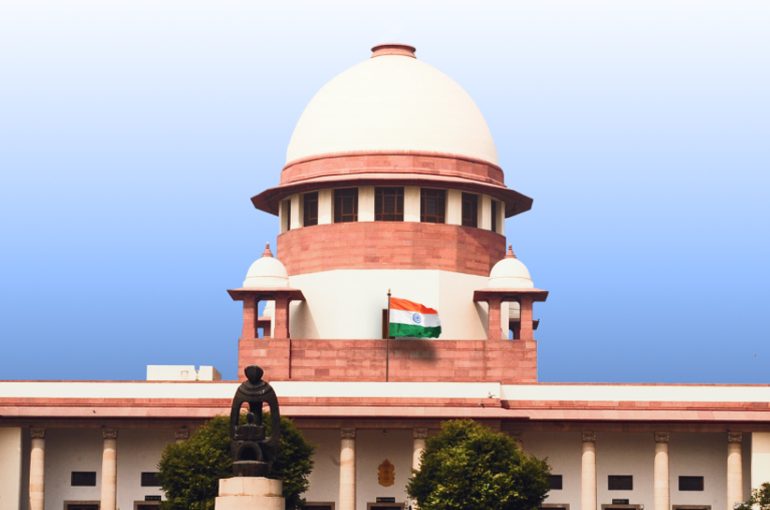THE TESTAMENT OF READINESS: UPHOLDING CONTRACTUAL SANCTITY IN SPECIFIC PERFORMANCE

INTRODUCTION
In the recent Judgment of Annamalai v. Vasanthi & Others, 2025 INSC 1267, delivered on 29 October 2025, a Two-judge Bench comprising Justice J.B. Pardiwala and Justice Manoj Misra of the Supreme Court of India clarified the scope of judicial interference under Section 100 of the Code of Civil Procedure, 1908 and reaffirmed the discretionary nature of specific performance under the Specific Relief Act, 1963. The Court restored the decree of specific performance granted by the First Appellate Court and set aside the High Court’s reversal, underscoring that readiness and willingness must be evaluated in light of the parties’ conduct and the overall circumstances.
BRIEF FACTS
The dispute arose from two connected suits concerning the sale of immovable property. The Appellant Annamalai filed a suit seeking specific performance of an agreement for sale dated 8 January 2010, executed by Saraswathi (D1) and Dharmalingam (D2). Under the Agreement, the total sale consideration was ₹4,80,000, of which ₹4,70,000 was paid in advance and the balance ₹10,000 was to be paid within six months. Later, upon the vendors’ demand for an additional ₹2,00,000, the Appellant paid ₹1,95,000 more on 9 June 2010, endorsed on the back of the Agreement.
Subsequently, the vendors unilaterally cancelled the Agreement and sold the property to Vasanthi (D3), who in turn filed another suit seeking a declaration of ownership and injunction against Annamalai. Both suits were decided together. The Trial Court dismissed Annamalai’s claim for specific performance and decreed Vasanthi’s suit, holding that the agreement was only a security for a loan. The First Appellate Court, however, reversed this finding, decreed specific performance in favour of Annamalai, and dismissed Vasanthi’s suit. On further appeal, the High Court of Madras set aside the decree of specific performance and directed refund of the advance money with interest. The matter thus reached the Supreme Court.
ISSUES OF LAW
The Supreme Court considered three central issues:
1) Whether the High Court was justified in interfering with the First Appellate Court’s findings regarding the payment of the additional ₹1,95,000 and the Appellant’s readiness and willingness to perform the contract.
2) Whether the suit for specific performance was maintainable without seeking a declaration that the termination of the agreement was invalid.
3) Whether, in the circumstances of the case, the Appellant was entitled to the discretionary relief of specific performance.
ANALYSIS OF THE JUDGMENT
1. Scope of Interference under Section 100 CPC
The Court held that the High Court exceeded its jurisdiction under Section 100 CPC, as the findings of the First Appellate Court on factual matters—such as payment of the additional sum and the plaintiff’s readiness and willingness—were neither perverse nor based on inadmissible evidence. The Supreme Court observed that the endorsement acknowledging receipt of ₹1,95,000 carried presumptive validity under Section 114 of the Evidence Act, 1872 and the burden to disprove it lay on the defendants, which they failed to discharge.
2. Readiness and Willingness
The Bench emphasized that readiness and willingness must be evaluated holistically, considering the conduct of the parties. Having already paid over 90% of the consideration and an additional amount after the expiry of six months, the Appellant had shown genuine intent to perform his part. Acceptance of additional payment by the vendors, the Court held, amounted to a waiver of their right to treat time as the essence and to terminate the contract under Section 55 of the Contract Act, 1872.
3. Necessity of Declaratory Relief
The Respondents argued that the suit for specific performance was not maintainable without a declaration that the termination was invalid. The Court rejected this contention, holding that since the contract did not confer any unilateral right to terminate and the vendors had waived even the right to forfeit the advance, the termination notice was void ab initio. Therefore, the Plaintiff was not required to seek a declaratory relief before pursuing specific performance.
4. Discretionary Nature of Specific Performance
Relying on Section 20 of the Specific Relief Act, 1963 (as it stood prior to the 2018 Amendment), the Court reiterated that though the relief of specific performance is discretionary, such discretion must be judicial and not arbitrary. Since the Appellant had acted bona fide and paid almost the entire consideration, while the Defendants acted in bad faith by selling the property to a close relative, the equitable relief of specific performance could not be denied.
The Court further clarified that a mere unproven claim does not amount to a false statement and the Plaintiff’s assertion of possession—even if unsubstantiated—did not disentitle him to relief. Citing R.C. Chandiok v. Chuni Lal Sabharwal (1970) 3 SCC 140 and A. Kanthamani v. Nasreen Ahmed (2017) 4 SCC 654, the Bench reaffirmed that conduct demonstrating fairness and preparedness satisfies the test of readiness and willingness.
CONCLUSION
The Supreme Court’s ruling in Annamalai v. Vasanthi & Others reaffirms crucial principles of contract enforcement and appellate restraint. It underscores that:
1) Time is generally not the essence in contracts for sale of immovable property unless explicitly stated or proved.
2) Acceptance of additional consideration after the stipulated period signifies waiver of default and continuation of the agreement.
3) A suit for specific performance can be maintained without declaratory relief if the termination itself is void and ineffectual.
4) The High Court’s jurisdiction under Section 100 CPC is limited to substantial questions of law and not factual reappraisal.
By restoring the decree of specific performance, the Court reinforced the sanctity of genuine transactions and protected the equitable rights of a party who had demonstrated readiness and fairness. The Judgment serves as a reminder that specific performance remains a remedy of conscience, guided not merely by procedural rigidity but by equitable justice.
SARTHAK KALRA
Senior Legal Associate
The Indian Lawyer & Allied Services
Please log onto our YouTube channel, The Indian Lawyer Legal Tips, to learn about various aspects of the law. Our latest Video, titled “Tips for Legal Practice in India | Build a Successful Law Career 2025 | Advocate Sushila Ram Varma|” can be viewed at the link below:





































Leave a Reply